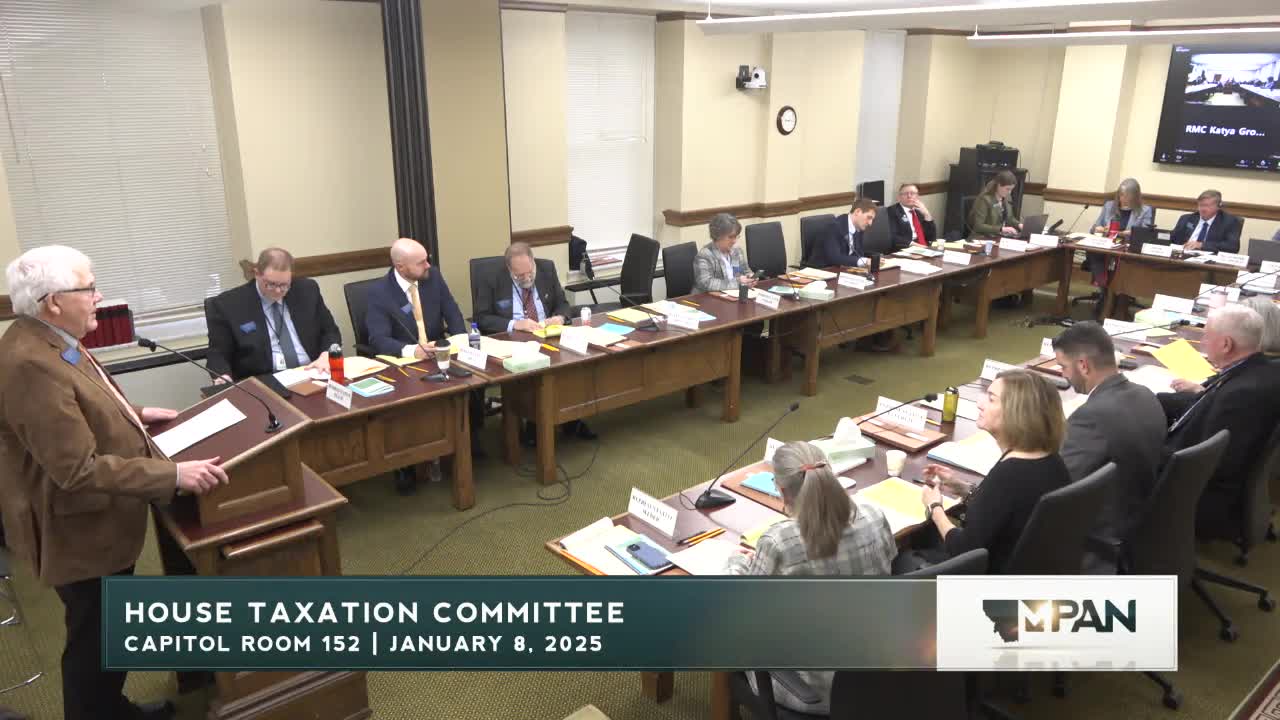Panel reviews bill to stop double‑claiming infrastructure fee as credit and deduction
Get AI-powered insights, summaries, and transcripts
Subscribe
Summary
Representative Larry Brewster presented House Bill 16 to prohibit taxpayers from claiming the infrastructure use fee both as a tax credit and as a deduction; economic development stakeholders urged changes to keep the program usable for rural communities and raised concerns about eligibility thresholds.
Representative Larry Brewster introduced House Bill 16 in the House Taxation Committee, saying the bill clarifies that taxpayers may not claim an infrastructure use fee both as a tax credit and as a deduction.
Brewster said the change is part of periodic statutory cleanup required for the Revenue Committee, and that the bill also adds notification to federally recognized tribes if enacted. "Prohibiting the infrastructure use fee from being claimed as a tax credit and a deduction" is the core change Brewster described to the committee.
Why it matters: the bill affects administration and eligibility for an economic development infrastructure program that state officials said helps attract private investment by providing loans for infrastructure tied to business projects. Proponents argued the bill closes a “double‑dip” and clarifies eligible project activity; some economic development representatives said the program’s current job thresholds and loan‑size formulas make it hard for rural communities to use the tool effectively.
Testimony and concerns: Eric Seidensticker, chair of the Montana Economic Developers Association policy committee, testified that removing the double‑claiming is sensible but urged the legislature to address proportionality for rural communities. Seidensticker said that setting eligibility at 15 net new jobs for rural communities ‘‘makes the tool largely unworkable’’ and recommended lowering thresholds and increasing per‑job loan amounts for communities under 10,000 population so the loan sizes are meaningful.
Dan Villa, executive director of the Board of Investments (an informational witness), told the committee that current outstanding activity in the infrastructure loan program does not appear to be retention‑based: when asked about the portion of distributions that go to salary increases or retention rather than new jobs, Villa answered, "0. We don't have any." Villa also described loan program activity in broad terms (outstanding loans and commitments were discussed), but specific dollar figures and some transcript numbers were unclear and should be confirmed in the program ledger.
Committee questions focused on whether the retention provision on page 2 had been discussed by the interim committee and on technical issues raised in the fiscal note (including effective date language). Representative Konar asked whether removing the retention allowance had been discussed during the interim committee; Brewster said he did not recall that discussion and suggested a separate bill might be appropriate for a broader change. Representative Rivas asked why certain infrastructure categories (water, sewer, roads) were struck; Brewster replied that the bill instead references the statutory list in section 71‑5‑4288 for eligible uses to avoid overly limiting language.
Procedure and outcome: No formal action was taken at the hearing. Brewster referenced a small positive fiscal note (he cited about $18,000), and the committee indicated executive action would be scheduled later.
Ending: The hearing closed with the sponsor reserving the right to close and the committee scheduling future executive action.
